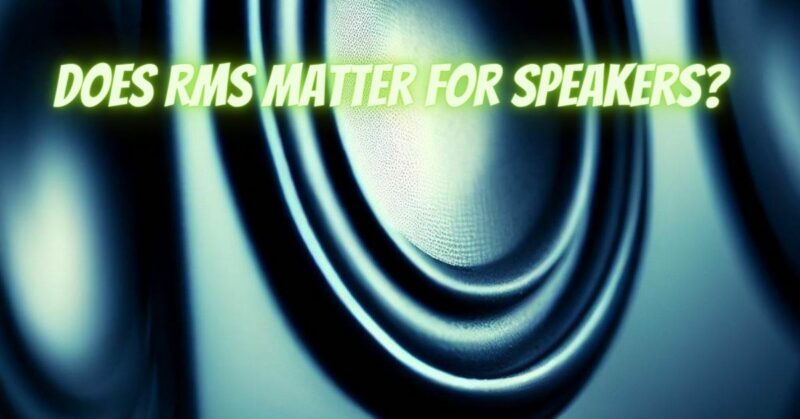Yes, RMS matters for speakers. RMS stands for root mean square, and it is a measure of the average power that a speaker can handle without being damaged. When choosing speakers, it is important to make sure that the RMS rating of the speakers is at least equal to the power output of the amplifier that you will be using.
If the RMS rating of the speakers is lower than the power output of the amplifier, the speakers may be damaged. This is because the amplifier will be sending more power to the speakers than they can handle.
In addition to the RMS rating, there are other factors to consider when choosing speakers, such as the sensitivity of the speakers and the impedance of the speakers.
The sensitivity of a speaker is a measure of how much sound pressure it produces for a given amount of power. A speaker with high sensitivity will require less power to produce the same sound pressure as a speaker with low sensitivity.
The impedance of a speaker is a measure of its resistance to electrical current. Speakers with different impedances need to be matched to amplifiers with the same impedance.
By understanding these factors, you can choose speakers that will sound their best and avoid damaging them.
Here are some additional things to keep in mind when considering whether RMS matters for speakers:
- Peak power: The peak power rating of a speaker is the maximum amount of power that the speaker can handle for a short period of time. The RMS rating is more important than the peak power rating when choosing speakers, as the speakers will be operating at their RMS rating most of the time.
- Clipping: Clipping is a type of distortion that occurs when an amplifier is unable to provide enough power to the speakers to reproduce the audio signal accurately. This can cause the speakers to produce unwanted sounds, such as buzzing or crackling.
- Overheating: If the amplifier is providing more power than the speakers need, it may overheat. This can damage the amplifier and the speakers.
By understanding these factors, you can better determine how much power you need to provide to your speakers.


